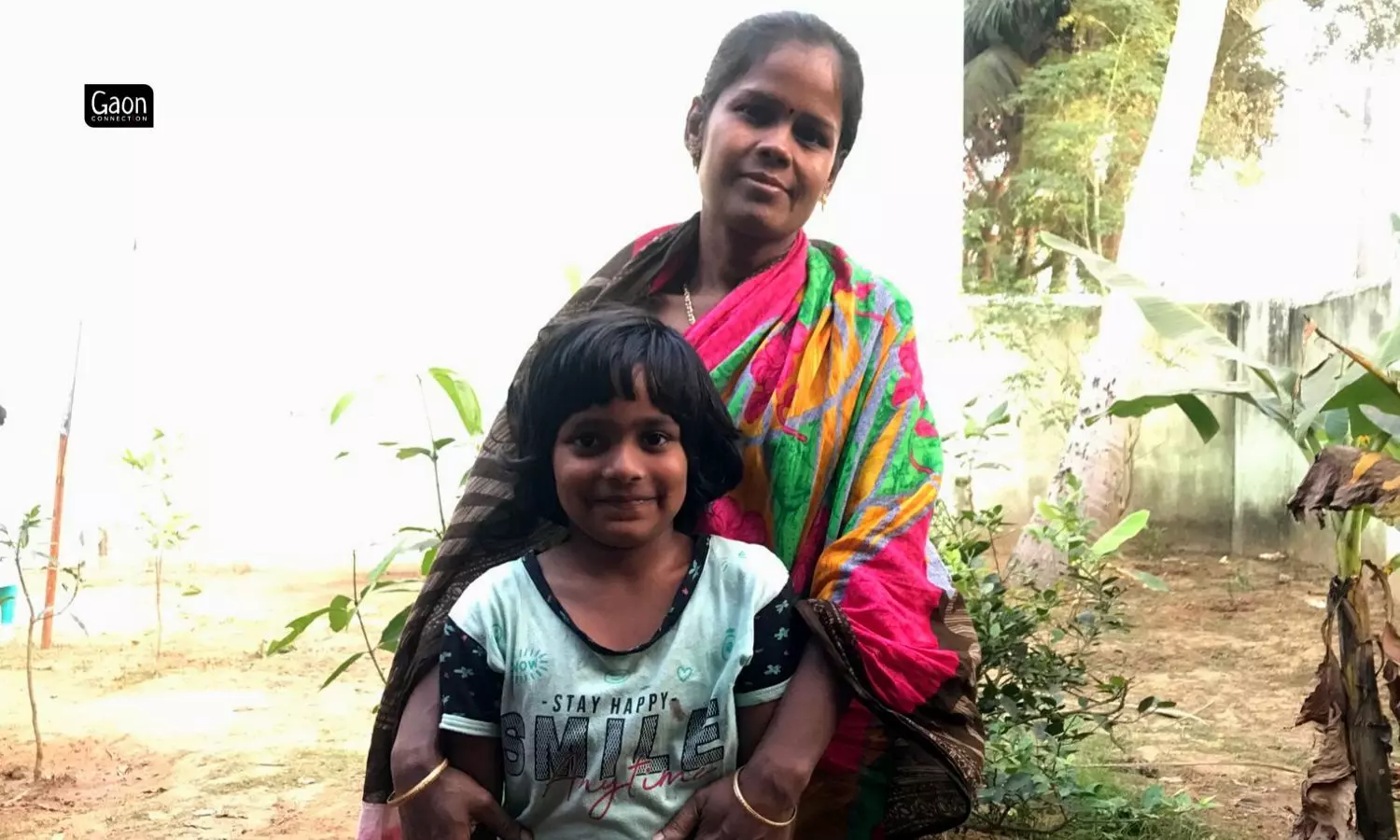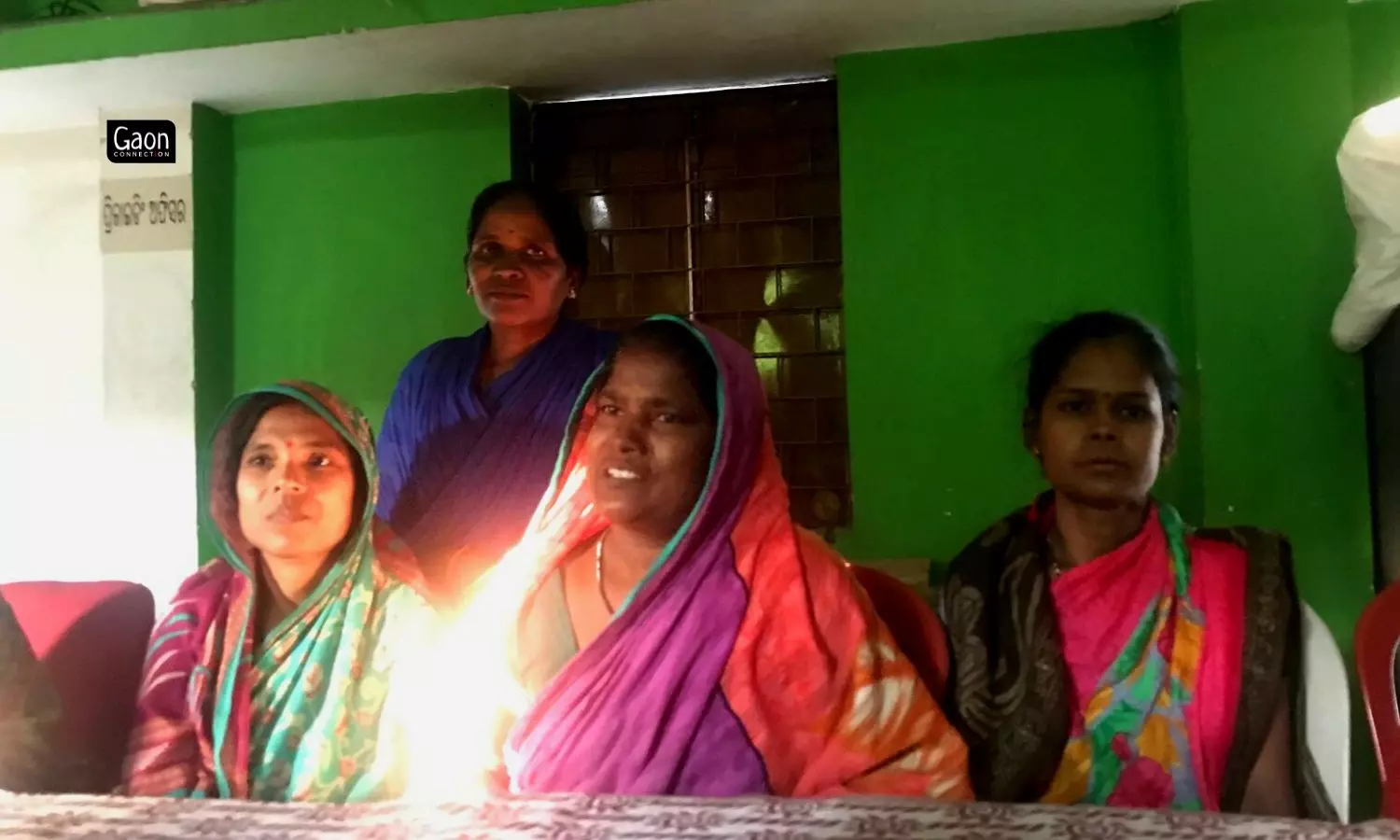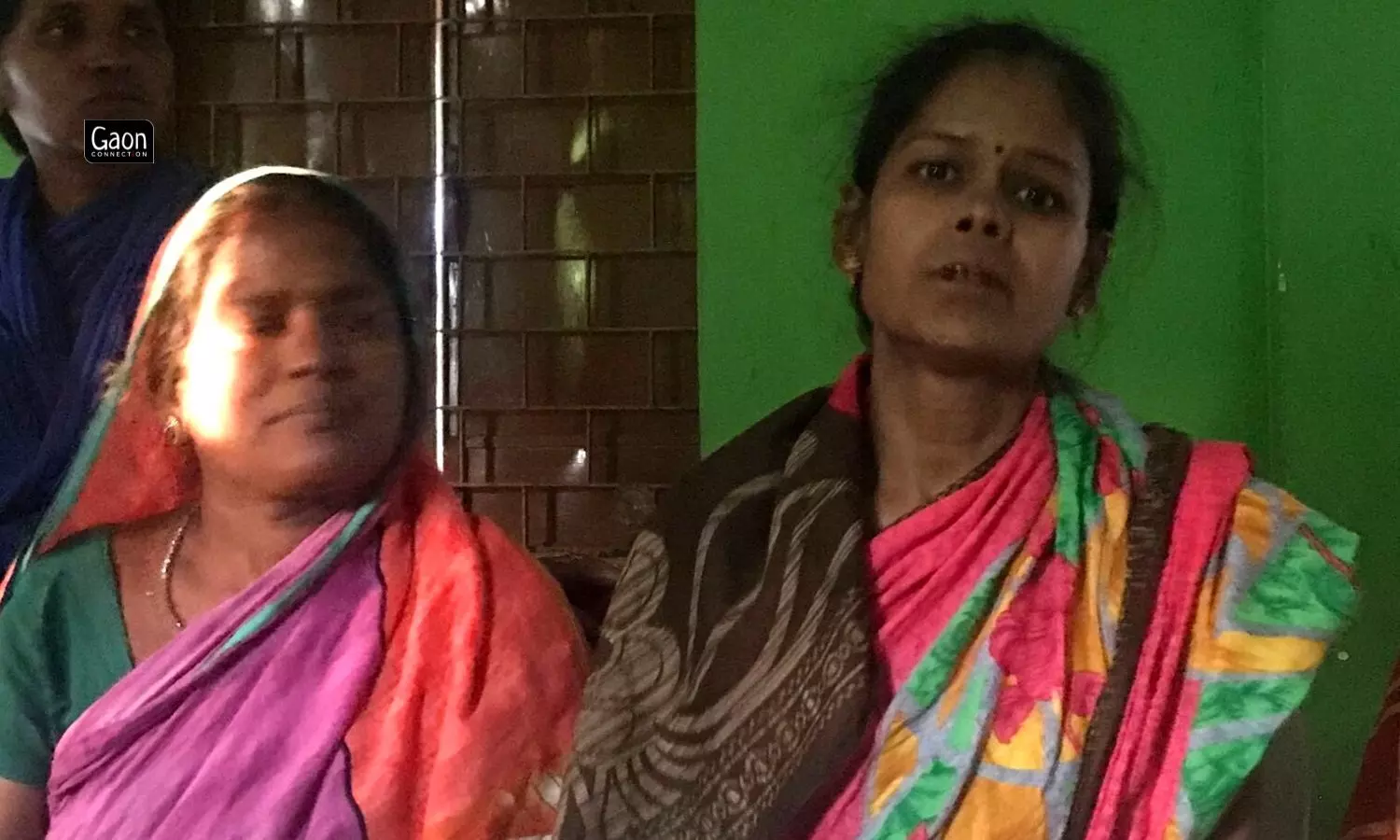Khordha, Odisha
Manu Naik sat quietly among a group of seven women in a classroom of Kushavadra Government High School in Bhakarsahi village. These women are a part of a self-help group (SHG) and visit the school six days a week to prepare midday meals for about 500 students who study there in classes 1 to 8.
The women SHG has been attached to the school since 2007, but 35-year-old Manu Naik, a widow and a mother of two children aged 11 years and seven years, is a new member. She has been cooking the midday meal of dalma, bhat, soybean, eggs, along with the other women, for the past year.
Her story is a testimony of how involving rural women in the midday meal programme of the government is not only helping raise nutritional standards of children studying in the government schools but also empowering women by providing them a window of opportunity and a source of income.
The Kushavadra Government High School, located in Khordha district of Odisha and set up in 1973, is covered under the High School Transformation Programme of Odisha government that focuses on the 5Ts — transparency, technology, teamwork, time, and transformation — to offer world class education through government schools.

The women SHG has been attached to the school since 2007, but 35-year-old Manu Naik, a widow and a mother of two children aged 11 years and seven years, is a new member.
The state government also has a Mission Shakti programme, which endeavours to provide sustainable livelihood support to women SHGs, and as part of it a number of women SHGs are involved in preparing midday meals at government schools.
These meals are being served in about 50,000 schools where more than 45 lakh (4.5 million) students are served freshly cooked food through 4,730 Mission Shakti Groups like the one in Bhakarsahi village with which Manu Naik is attached.
Listening to the women who are a part of these SHGs shows the slow transformation that is being brought about both in village schools and the lives of rural women.
Also Read: Want To Give Back To Your Alma Mater? Odisha’s Mo School Abhiyan Shows How It Can Be Done
Manu Naik’s husband was a truck driver and an alcoholic. No day passed without him getting drunk and beating his wife blue and black. There was always a shortage of money to raise their two kids.
“Every day he used to beat me and my kids used to watch with fear written all over their faces. Three years back, he fell sick and died and I returned to my father’s home in Bhakarsahi village,” narrated Manu Naik as she sobbed and wiped tears with the pallu of her saree.
“I had no money and no source of income. I had to raise my son and daughter. A year ago I approached the Kushavadra school and then joined the mahila samiti [SHG] and now cook midday meals. My seven-year-old daughter studies in this school only,” said Manu Naik.

Ahilya Barik, in her late 50s, heads the women SHG which prepares midday meals at the Kushavadra Government High School.
The monthly earning isn’t too high. Manu Naik and the other six members of the SHG earn Rs 1,400 each per month. But the opportunity of daily coming to school and being there from 10 am till 3:30 pm has opened up a new world for these women, made them more confident and earned them respect from their family and the society at large.
“After my husband passed away and I had two kids to support, I used to sit at home and cry endlessly. I was depressed,” recalled Manu Naik in a choked voice. “Now that I daily come to the school, watch children play and learn, cook for them, and teach them personal hygiene, I have found a purpose in life,” she added.
“Money [monthly remuneration] is not everything; coming to school gives me hope and happiness,” she said. Since she is unable to raise both her kids alone, Manu Naik’s 11-year-old son lives with a relative and she is taking care of her seven-year-old daughter.
Ahilya Barik, in her late 50s, heads the women SHG which prepares midday meals at the Kushavadra Government High School. She vouches for how daily coming to school and cooking midday meals has improved the lives of each of the group members — Manu Naik, Kavita Patra, Poornima Patra, Sushmita Behera, Bharati Mohanty, Sanjukta Das, and herself.
“We are happy women as we are involved in the functioning of the school and cooking for children,” said the group leader.
“We follow a fixed daily menu. Mondays is dalma (dal cooked with vegetables) bhat (rice). Tuesdays is soybean; Wednesdays is vegetable, egg and rice; Thursdays again dalma bhat; Fridays soybean rice; and Saturdays egg and rice,” said Ahilya Barik.
On being asked what meal do students enjoy the most, she said, “They love eggs and then comes soybean. We feel so happy watching children eat what we cook. They are like our family now, our own children and grandchildren.”
Earlier this year, in June, Naveen Patnaik, the chief minister of Odisha, sanctioned Rs 117.73 crore financial assistance for cooks and helpers engaged in preparing and serving the midday meals in schools across the state. He also sanctioned Rs 5.45 crore for buying a sari each.

The state government also has a Mission Shakti programme, which endeavours to provide sustainable livelihood support to women SHGs.
“Noon meals are vital in enhancing nutrition and facilitating education among children and the cook-cum-helpers are at the forefront of this initiative,” the chief minister had said while approving the funds.
India runs the world’s largest school feeding programme under which every child in every government and government aided school (class 1 to 8) is served a prepared midday meal with a minimum content of 300 calories of energy and 8-12 gram protein per day. The scheme covers about 11.80 crore children studying in 11.20 lakh schools across the country. The scheme is also known as PM POSHAN (POshan SHAkti Nirman) Scheme.
Nidhi Jamwal is Managing Editor of Gaon Connection.




















